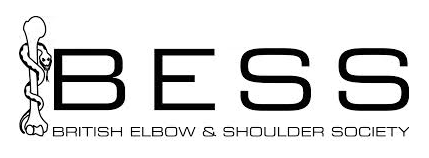Why Does My Shoulder Hurt? Exploring the Causes of Shoulder Pain
If you’re experiencing shoulder pain and are not sure why it’s occurring, you’re not alone. Aching shoulders can be caused by a variety of reasons from a simple strain, or it could be a sign of something more serious. In this article, I will explain some of the causes of shoulder pain, how to diagnose it, and how to treat and prevent it.
Introduction to Shoulder Pain
Shoulder pain is a common complaint that can range from mild to severe, depending on the cause. It can be felt in or around the shoulder joint, as well as in the arm, neck, and upper back. It can be sharp, dull, burning, or aching and can be constant or intermittent. The pain can be accompanied by other symptoms, such as weakness or numbness in the arm, and can be caused by many different factors.
Causes of Shoulder Pain
Shoulder pain can have numerous causes, including injury or overuse, medical conditions, and poor posture.
Posture
Poor posture is one of the most common causes of shoulder pain. When your posture is incorrect, the muscles, tendons, and ligaments in the shoulder become stretched and strained. This can cause pain and discomfort and can even lead to long-term problems if not addressed properly. Poor posture can be caused by sitting for long periods of time, standing for long periods of time, or slouching. I often tell my patients that most shoulder problems can be corrected by simply standing and sitting up straight. It may sound too simple to be true, but it often solves the pain.
Injury or Overuse
Injury or overuse is another common cause of shoulder pain. It can be caused by trauma, such as a fall or car accident, or by repetitive motions or activities, such as throwing a ball or lifting heavy objects. Overuse can occur when the shoulder muscles are used for long periods of time or when a joint is placed under too much pressure. There are four main muscles surrounding the shoulder joint and collectively these are known as the rotator cuff muscles. Conditions of injury or overuse include rotator cuff tears, tendonitis, bursitis, also known as shoulder impingement syndrome and shoulder dislocations.
Tendonitis occurs due to microtrauma to the tendons surrounding the shoulder joint. The tendons may become inflamed causing pain. The bursa, a small fluid-filled sac, that lies above the rotator cuff tendons. It is a normal structure that helps the shoulder joint to glide smoothly during movement. With repetitive movements under pressure, the bursa can become inflamed, and this is known as bursitis. Rotator cuff tears occur when the tendons and muscles that surround the shoulder joint are stretched beyond their functional limit and become torn.
Diseases or Medical Conditions
In addition to injuries and overuse, shoulder pain can also be caused by diseases or medical conditions, such as arthritis, infection, or a frozen shoulder. Arthritis occurs when the cartilage that lines the ends of the bones in the joint becomes damaged and can flake off. This can cause pain and stiffness in the shoulder. Infections can occur when bacteria or viruses enter the body, causing redness and swelling in the shoulder. A frozen shoulder is a condition in which the shoulder joint becomes stiff and exquisitely painful.
In rare circumstances, shoulder pain may indicate an underlying bone tumour that may be due to cancer directly from the bone itself, or a secondary bone tumour from a tumour somewhere else in the body. Cancer of the breast, prostate, kidney and lung commonly metastasise to bones.
Diagnosing Shoulder Pain
If you’re experiencing shoulder pain, it’s important to seek medical attention. Your doctor can diagnose the cause of your pain and recommend the best treatment plan for you. Expect to be asked questions about your medical history. I tend to ask lots of questions about your lifestyle so that I can tailor a treatment plan exactly for you. It is important to perform a physical exam to assess your overall posture, how smoothly your shoulder is moving, and to test strength.
Radiological tests, such as X-rays, Ultrasound scans, CT scans, or MRI scans, are useful to look at the structures of your shoulder. Different tests are used depending on the working diagnosis of your shoulder pain as they are more accurate at looking at the specific structures in the shoulder.
Treating Shoulder Pain
The treatment for shoulder pain depends on the cause. For injuries and overuse, rest and physical therapy can help. Simple medications, such as ibuprofen, can help to reduce inflammation and pain. Steroid injections are very effective for treating shoulder impingement and frozen shoulder pain. For medical conditions, such as arthritis treatment may include medications, injections, or joint replacement surgery. If an infection is suspected, then it is important to seek medical attention as soon as possible as the shoulder joint may need an urgent surgical washout and oral or intravenous antibiotics. If a bone tumour is suspected, this will require a specialised and urgent treatment pathway in collaboration with a multidisciplinary team to include oncologists and radiologists.
Preventing Shoulder Pain
The best way to prevent shoulder pain is to maintain good posture and avoid repetitive activities that put strain on the shoulder joint. Make sure to take regular breaks from activities that involve repetitive motions, such as typing or lifting weights. Also, make sure to practice safe lifting techniques and use proper equipment, such as a weight belt, when lifting heavy objects. Take care to maintain good posture when exercising and lifting weights at the gym. If you are not sure how to do this, it is advisable to get work with a personal trainer.
Conclusion
Shoulder pain can have many causes, from poor posture to injury or overuse to underlying medical conditions. It’s important to seek medical attention if you’re experiencing shoulder pain, as it can be a sign of something more serious. I can diagnose the cause of your pain and recommend the best treatment plan for you. All treatment plans are designed individually for you and are tailored to your specific needs.
If you’re experiencing shoulder pain, contact me for an appointment by emailing or calling +44 (0) 203 195 2459. If your shoulder pain is severe or persists for more than a few days, please make sure to book an appointment urgently to exclude more serious causes such as an infection or a fracture.
Ms Susan Alexander is a Consultant Orthopaedic Surgeon and President of the Independent Doctors Federation.
She specialises in all shoulder conditions, including frozen shoulder, rotator cuff tears, dislocations and arthritis. Based in London, she practises at Fortius Clinic and King Edward VII’s Hospital. Ms Alexander is highly experienced in minimally invasive (keyhole) shoulder surgery and is known for her meticulous, patient-centred and holistic approach.
She focuses on accurate diagnosis, bespoke treatment planning, and ongoing support throughout recovery. Learn more about Ms Susan Alexander here.










